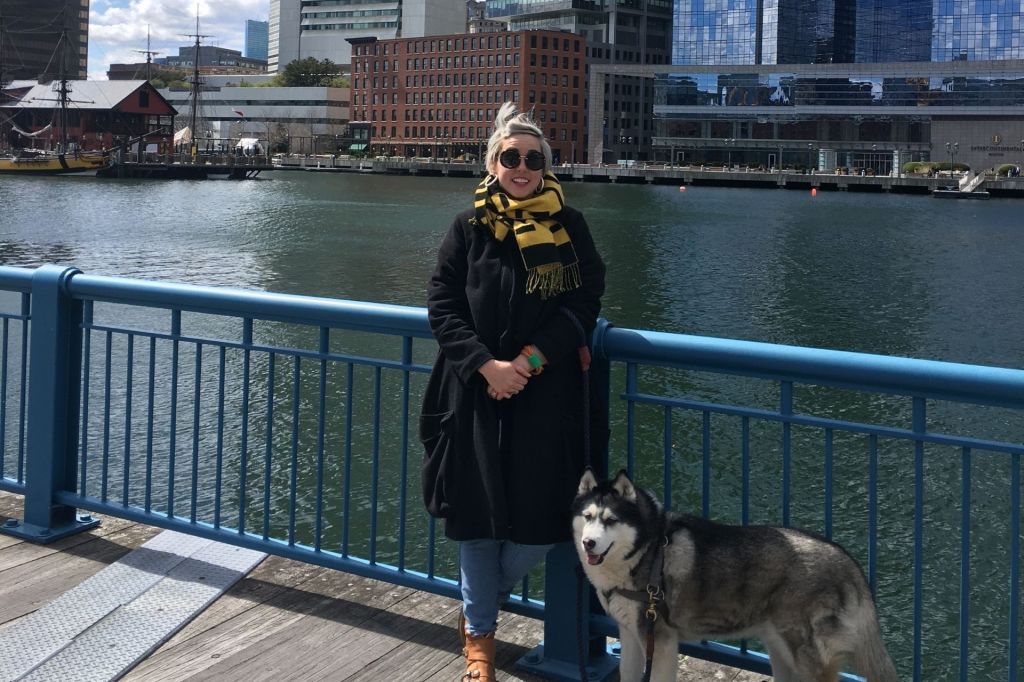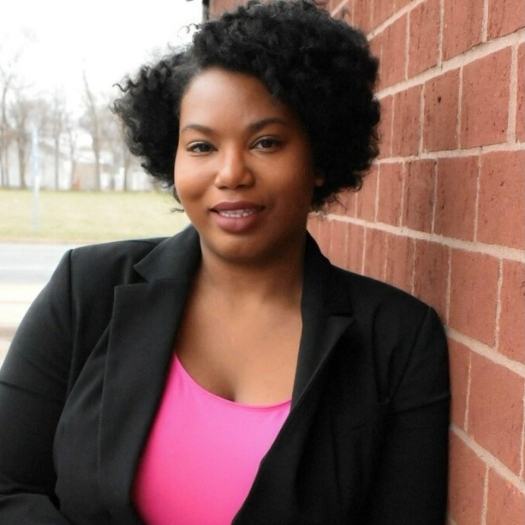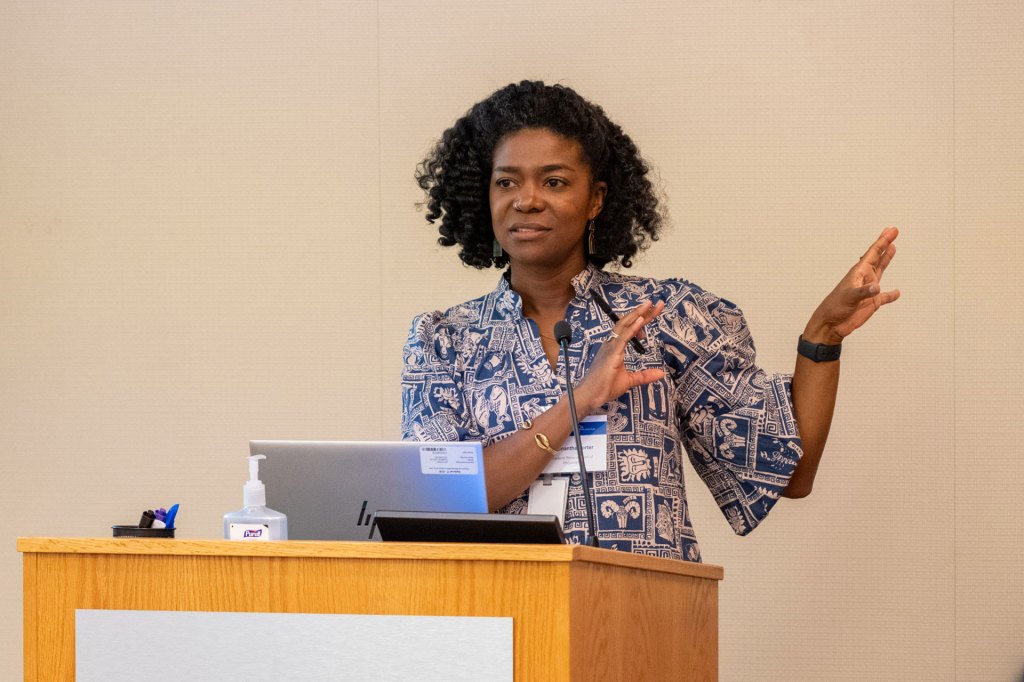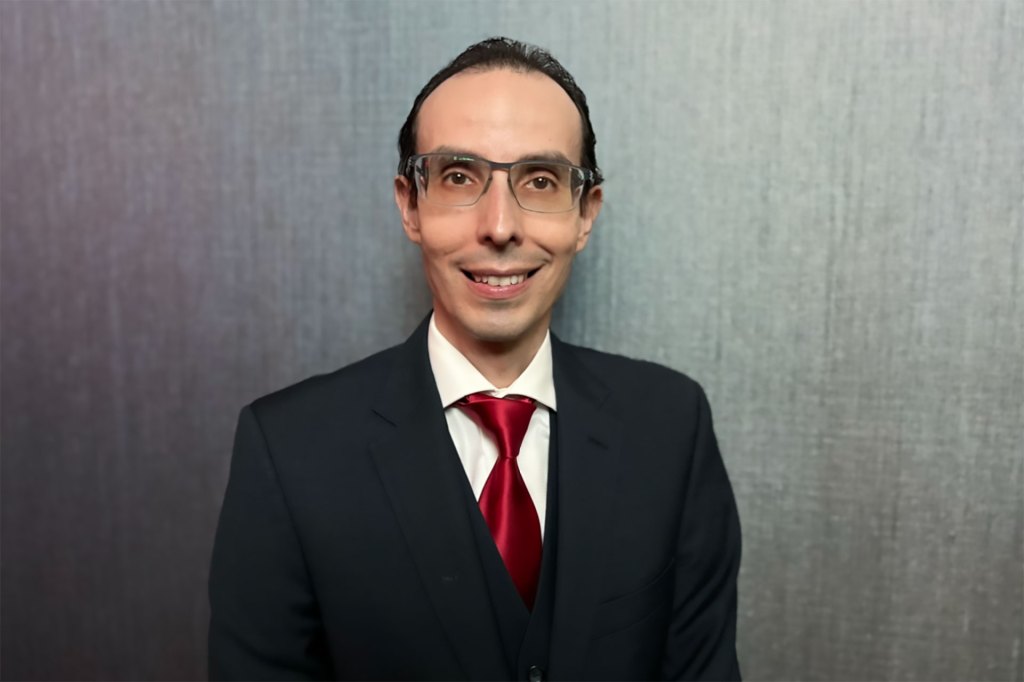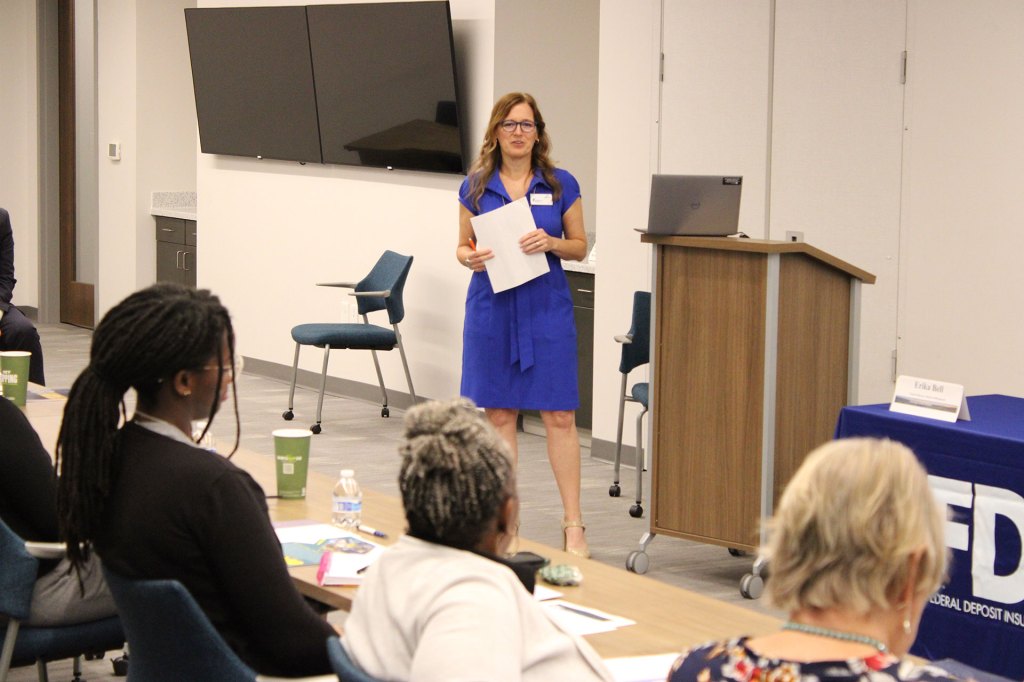Marija Bingulac, Senior Community Development Analyst, Boston Fed
As a small child, Marija Bingulac understood the value of human kindness. Growing up in Serbia she witnessed the disproportionate injustices suffered by her Romani friends and neighbors because of the stigma imposed on their ethnicity. Watching the most vulnerable communities within an impoverished country experience violence and hate is one of the reasons Marija dedicates herself to a life of service through research. “We couldn’t control what the government was doing to us, but we can control how we treat each other,” she says.
Marija’s father showed her one of her earliest examples of empathy. She recalls his kindness toward a Romani child she’d seen other adults shame for asking for spare change at a red light. When the child approached her father, he gave her money, a touch on the cheek, and kind words: “You be careful out there.” A small gesture, Marija perceived, changed the child—from one who was prepared to flee into one who was unguarded and vulnerable. “In that moment, I saw her face transform, and she was a child again.”
“We couldn’t control what the government was doing to us, but we can control how we treat each other.”
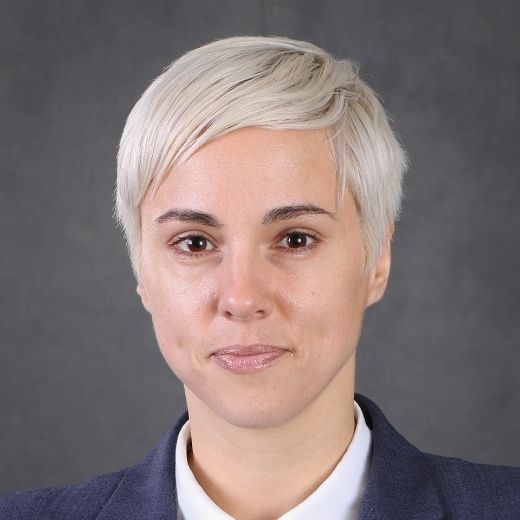
A life of service
Such moments inspired Marija to work in the community development field. In her research, Marija aims to not only emphasize an issue—for instance, the poverty of the Roma people—but also challenge inaccurate narratives that perpetuate the disenfranchisement of people. While working with the Roma people, Marija heard one phrase repeatedly: “We know that discrimination exists, but we can’t prove it.” Finding the proof became the goal of her dissertation, leading her to construct the “Roma wage penalty”—an original measure of discrimination—and surface other discriminatory experiences of Roma that can’t be captured in national statistics. Marija applies the same passion to her work at the Boston Fed, where she’s involved in projects aimed at reducing racial economic inequities.
In 2020 Marija and two colleagues, Sydney Diavua from the St. Louis Fed and Jennifer Fernandez from the Federal Reserve Board of Governors, received the Janet L. Yellen Award for Excellence in Community Development. The trio founded and lead the Racial Equity Learning Community, a staff-driven, multiracial group formed to create a racial equity framework to guide the work of the Fed’s community development teams nationwide. “I want my work to be of service,” Marija offers. It certainly is, and in ways that must make her father proud.






